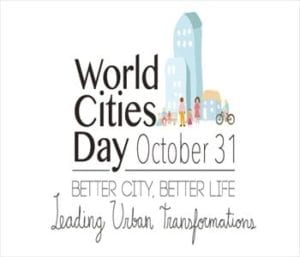The United Nations (UN) estimates that the urban population of emerging economies will surpass the rural population in 2020, and that nearly 80% of South Africa’s population will live in an urban area by 2050. The Institute of Race Relations noted that by 2013, two thirds of our citizens lived in urban areas, identifying that ‘urbanisation creates conditions for economic activity’.
A concentration of people and critical infrastructure creates new demands, and presents new challenges on how to maintain an acceptable level of security and public safety. For example, the Institute also noted that urbanisation in South Africa can fuel crime, ignite social tensions, create environmental and health risks, and pose challenges for service delivery. UN General Secretary Ban Ki-moon said recently that “We must get urbanisation right, which means reducing greenhouse emissions, strengthening resilience, ensuring basic services such as water and sanitation, and designing safe public streets and spaces for all to share.” The UN celebrates World Cities Day each year on 31 October, and in his message for last year’s event, Ban Ki-moon emphasized that ‘urban transformations require political will and the capacity to co-ordinate many actors and stakeholders.’ Societies are sometimes not agile enough to prevent or respond to situations that can seriously affect their communities. In order to counter these threats, cities and states need integrated solutions that cut across all stakeholder groups to dramatically enhance and improve response time and actions in security and safety incidents. These solutions need to be reliable, scalable and flexible, and should facilitate both centralised and remote control of operations. This concept is referred to as ‘Safe Cities’.
Safe cities
Safe Cities improves the safety and security of citizens and protects critical infrastructure by having the right resources in the right place at the right time. This is achieved through optimised operations and improved coordination between police, ambulance, fire, disaster management and traffic management services. Paramount to this is the exchange of mission critical information between the various stakeholders to ensure a common operational picture.
TactiCall is built on Voice over Internet Protocol (VoIP) technology and connects all voice and data communication platforms and networks into one, making it an easy to operate communication solution. The system gives security personnel, like the South African Police Services, complete control of, and fast access to, all communication networks so that joint operations between the various stakeholders can be facilitated. It allows everybody to reach each other, regardless of the equipment being used. Introducing the concept of Safe Cities will help meet some of the challenges that could arise in South Africa as a result of its rapid urbanisation. As the concentration of people in our cities increases, so will the threats. Optimising operations and coordination between safety and security units in our cities through technology will help manage these potential problems and ensure the well-being of our citizens.








